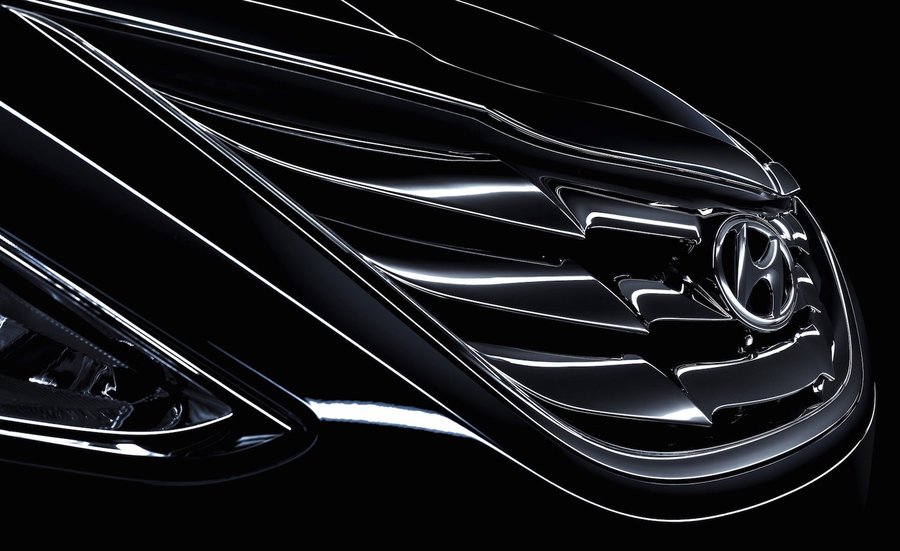Hyundai sales slump in China over North Korea, standoff with Chinese partner

Hyundai, along with affiliate Kia, has been caught up in a political row over a missile defense system that is being deployed in South Korea, but opposed by China, as tensions grow over North Korean missile tests and last week's test of a nuclear bomb the North claims can be mounted on a missile.
Sales of Hyundai cars in China have been falling, part of a backlash against South Korean brands over the missile system that China views as a threat to its own national security.
On Tuesday, South Korea asked the United States to lift a limit on the explosive payloads it can use in the missile system. This as a North Korean missile, believed to be an intercontinental ballistic missile, was being tracked by intelligence services being moved on the ground toward North Korea's west coast and a possible launch site.
That has come against the backdrop of ever tougher competition from local Chinese automakers.
Until last year, Hyundai and Kia ranked third in China by sales. But Hyundai's sales alone have slumped 41 percent from January to July, fraying relations with local partner BAIC Motor Corp and making this the biggest crisis since Hyundai entered the Chinese market in 2002.
Last month, Hyundai suspended production at its four China plants for a week after a French supplier refused to provide fuel tanks when its bills went unpaid. On Tuesday, Hyundai suspended production at one of its plants in China after a German firm went unpaid.
Hyundai and BAIC — whose Beijing Hyundai joint venture is a 50:50 partnership — are divided over how to solve the issue of suppliers and tougher competition. Hyundai wants to protect its South Korean supply chain, while BAIC favors shifting to cheaper Chinese suppliers to cut costs, the people said.
"BAIC wants to solve this aggressively and is ... asking Hyundai to change its sourcing strategy significantly and immediately," said the head of a Hyundai supplier based in Seoul, adding the idea was to source more locally from cheaper suppliers in China.
Hyundai wants to solve this more gradually "over perhaps 5-10 years and do so in phases," the person said.
BAIC declined to comment.
A Hyundai spokesperson told Reuters: "Hyundai Motor and Kia Motors have been continuously trying to source competitive parts in China."
The standoff underscores the depth of a crisis facing Hyundai and its suppliers in China, heavily reliant on sales to Hyundai and Kia.
"China has started to become a grave for South Korean automakers and suppliers," said Lee Hang-koo, a senior research fellow at Korea Institute for Industrial Economics & Trade, adding suppliers were being hit the hardest.
South Korean firms are squeezed between cheaper Chinese suppliers and European rivals which are technologically more advanced, making it challenging for them to diversify their customers beyond Hyundai, he said.
Parts from South Korean suppliers are around 30-40 percent more expensive than those from Chinese suppliers, industry sources say.
PRICE WAR
Hyundai has sought to turn its fortunes around, and last week replaced the head of its China operations. It also has plans for a local "brand" store, wants to assemble its premium Genesis cars locally and accelerate the launch of a sport-utility vehicle (SUV) for China.
But sales have kept falling, aggravating an underlying rift at Beijing Hyundai over supplier costs, as Chinese carmakers such as Geely Automobile gain strength, and local suppliers improve their quality.
Hyundai cars in China rely heavily on South Korea suppliers that have set up shop there, in large part to serve the group, despite higher costs. Some 145 members of South Korea's parts supplier association had 289 plants in China at the end of 2016.
"We can't beat (local suppliers) in terms of price," a senior executive at a South Korean supplier to Hyundai told Reuters, adding BAIC was putting pressure on Hyundai to switch to Chinese parts.
A second supplier said some suppliers had not been paid since May, with BAIC pressing to cut prices by a fifth before payment. That could push some to a loss, the executive said.
GROWING PRESSURE
Pressure from BAIC to cut supplier costs has grown after a parts procurement study two years ago looked at its supplier costs versus Chinese rivals such as Changan Automobile Co and Great Wall Motor.
These Chinese carmakers have made big strides, sometimes taking advantage of global automakers' and suppliers' engineering know-how and expertise, helping them produce popular and competitive SUVs, and win market share.
BAIC backed moving towards local suppliers, and using the local supply chain to press overseas suppliers to reduce their costs. For Hyundai, though, this would hurt suppliers, including its affiliates, who serve it globally.
An official at the South Korea parts suppliers' association, asking not to be named because of the sensitivity of the matter, said some suppliers to Hyundai in China were taking out loans and laying off staff.
"This is not an easy one to solve," said another person close to Hyundai, adding the carmaker would seek to avoid changing its supply chain policies in China.
"But if sales of Hyundai cars keep falling, then perhaps Hyundai will have no choice but to accept BAIC's solution."
Related News


